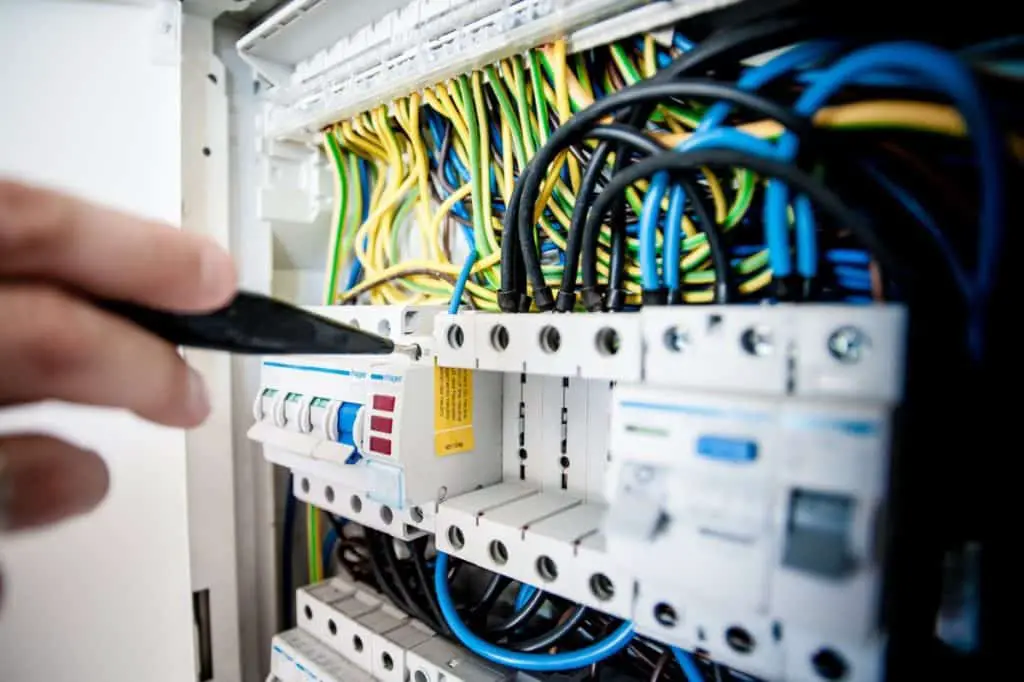
Perhaps one of the greatest perks to being an electrician is the idea that the only shifts we work are 8 till 4, Monday to Friday. But is this accurate, are these the real working patterns of electricians or do we all need to be more flexible?
Electricians typically work Monday to Friday. However, in my experience you will often be expected to work occasional weekends, either as paid overtime or as part of a call out rota.
I’ve had several electrician jobs, for various companies, and all of which follow the standard set out above. Whilst weekends are not usually part of our typical shift pattern, they are an often expected part of the job.
Why do electricians have to work weekends? Read on to discover the reasons why you are unlikely to find a Monday to Friday Sparky, and the pros and cons to these less sociable hours.
Why Do Electricians Have To Work Weekends?
Some readers may be questioning why an electrician bothers working a weekend at all. If you are not interested in earning overtime rates can you simply not work them?
Electricians typically have to work weekends because a lot of our work involves turning customers power off, causing disruption. In many places, such as offices or factories this inconvenience is unacceptable during the normal working week.
In a nut shell, many work locations simply won’t let us turn the electricity off to work on whilst they themselves are trying to work.
If an office building has several hundred people working Monday to Friday it makes far more sense, from a productivity point of view, to have the disruptive work done at the weekend when the offices are empty.
It’s not just commercial buildings which require out of hours work, domestic properties can also be worked on easier at weekends.
More often than not, a customer wants to be present whilst you are working in their home. This means that Saturday bookings always fill up fast for an electrician. A sparky who chooses not to work weekends ends up turning down an awful lot of work.
As we can see the main reason for weekend work is to fit in better with the customer’s needs. However, it’s not all about the customer, as working weekends can carry some large benefits for the electrician as well.
Do Electricians Get Paid For Working Weekends?
Most electricians will get paid overtime rates for working at weekends, unless they are on a rota system as part of their existing contract. Sometimes I have chosen to sacrifice additional pay at the weekend, for extra time off during the week.
It really depends on the type of contract you are on with your employer.
More and more employers are trying to change the working hours of their electricians to include weekends as part of a rota. This results in a huge cost saving for the employer as they don’t have to pay the overtime rates. (The average working week for electricians)
Self employed electricians have to make their own judgement regarding whether or not they choose to charge customers a higher rate at weekends.
Weighing up the inconvenience to themselves against wanting to please the customer can be a tricky balancing act.
How Much Do Electricians Earn At Weekends?
Electricians can expect to earn an enhanced rate of pay when working at weekends. We typically see hourly rates such as 1.5x on Saturdays and 2x on Sundays. However, each employer is different, and some include weekend work as part of the basic salary.
In honesty, most employers I know pay an enhanced rate at weekends in order to encourage their sometimes less than keen electricians into work!
Most commercial customers expect to pay extra for the work being done at weekends so the additional costs are passed on.
Electrical companies who have a lot of weekend working requirements often place their employees onto a rota system. In these instances, working weekends is part of their normal shift pattern and does not include any enhanced rates.
Even if not on a rota system, and not required to work a weekend shift, an electrician may still find themselves on ‘call out’ to cover the weekend in the event of any emergencies.
What Does An Electrician Call Out Mean?
When we refer to an electrician ‘being on call’, we mean that we are at home on standby. Our phone is switched on and we are ready to react to any emergencies that arise. If the phone rings to attend a job we refer to this as ‘being called out’
A call out rota generally works on a weekly basis.
- For example, if firm ABC Electrical has 10 electricians working for them, a typical rota will see each electrician covering call out once every 10 weeks.
Call outs cover all day and all night. I’ve had many experiences of being on call and the phone ringing just as I’m about to get into bed, or about to head off somewhere at the weekend.
Not every electrician job requires call out, but with our dependence on electrical power getting more and more intense people are no longer willing to wait until normal working hours to get their problems fixed.
Another example of a call out is the fee an electrician will charge for attending a property. There are time and cost implications to us attending a property and these are reflected in the call out fee we charge to the customer.
Perhaps the idea of call outs and weekends is starting to put you off the idea of becoming a sparky, but are there roles that don’t require any weekend work?
Are There Electrician Jobs That Don’t Require Weekend Working?
In my experience, there are very few electrician jobs which don’t require any weekend working. The disruption caused by turning off the electricity to work on the system, ensures that there are often requirements for out of hours working to minimise this disruption.
That being said, there are some roles available if you really, really dislike the idea of working weekends
- Self employed Electrician: One of the great perks of being self employed is that you get to dictate the hours you work, including whether or not you choose to work weekends.
- Electrical Teacher: Perhaps you fancy leaving the tools behind. Becoming a lecturer at an electrical college is a great way of ensuring longer holidays and no weekend working.
- Large Organisations: If there are lots of employees within a company, we often find that some of those electricians are keen to work as many weekends as possible in order to earn extra money.
This is especially true of the younger sparks saving for house deposits etc.
In many cases those who don’t want to work weekends are more than happy to allow the those who are keen to work them all. This works out great for both parties.
In Summary
Most electricians find themselves having to work weekends at various points in their career. Some really enjoy working them as a chance to earn extra money or receive extra time off at a later date. (How hard is being an electrician?)
On the other hand, some electricians are not so keen to work weekends and either grin and bear it on occasion, or find another keen sparky to take their place.
The vast majority of electrical work is still carried out during normal working hours but our dependence on power means that turning off supplies during the week is becoming more and more tricky.
In my time as an electrician, I have probably averaged working one weekend a month. Most of these I have been happy to work, only having to begrudgingly work weekends a handful of times.
Overall, the shift patterns of electricians are generally very good compared with other careers, but some degree of flexibility is essential.

